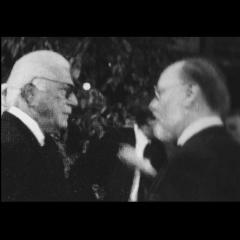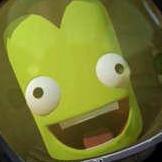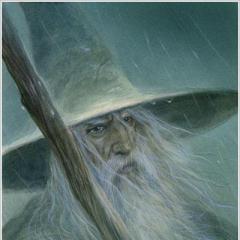Leaderboard
Popular Content
Showing content with the highest reputation on 07/09/12 in all areas
-
I think it's unfortunate that people here celebrate film music at all when there are millions of human beings around the world mired in abject privation. The time utterly wasted here pitting composers against one another like action figures could be better spent helping our fellow man. We talk about scores that give us "pure sensations of goosebumps, laughter, and tears" but don't contemplate that we have the luxury of experiencing these emotions at our leisure, innocuously, and with complete inconsequentiality. We don't think of those shivering in the cold, crying because they don't know where there next meal will come from, and laughing bitterly at a world around them preoccupied with consumerism and empty pretension. It doesn't matter whether you love Howard Shore or John Williams more or less or as much as the other. To expend energy loving either at all is to diminish yourself, and the world we live in..3 points
-
2 points
-
Jane Eyre by Dario Marianelli It didn’t take long for Marianelli to rise up in the ranks of my favourite composers. He truly is an incredibly talented composer; one whose work I especially I admire. His elegant European sensibilities have always appealed to me from the romance of Atonement to the raw savage power of Agora and so on. With Jane Eyre, the man returns to intimacy at its finest. I recall when hearing this score upon its release, it didn’t quite click with me. It seemed cold and emotionally distant. Of course having returned to it in my annual year-end wrap up for 2011, I had no idea what made me dismiss this work so shamelessly. It was on repeat for days and quickly became one of favourites of the last year. Emotionally distant?! Humbug! What a fool I was. Anyways, I decided to take another listen to it because it sets the mood I need right now. But bearing that in mind, this is a score that needs time and multiple visits to truly appreciate its merits. Marianelli’s greatest success with this score is the incredibly intimate atmosphere he crafts for this darker rendition for Bronte’s classic tale. There is no brass here, no big orchestra to sweep you away. A simple string orchestra, piano, some mild use of woodwinds and vocals, extensive harp material and some solo work. But Marianelli uses these elements with great execution. The heart and soul of the score is clearly the virtuouso violin work of Jack Liebeck. It’s the key tool used to achieve that irresistible intimacy that was nailed here. The main theme may be simple in its structure but the way Liebeck truly lets it soar is incredibly intoxicating. It’s quite hard not to be taken by how violin soars in “Yes!” or “The Call Within”. In a sense, it’s almost indescribable. I also appreciate Marianelli’s elegant writing here, displayed with the finest finesse. There’s nothing extraordinarily complex here. As I mentioned above, all the interweaving motifs are rather simple in their structure, including the main theme. It’s how Marianelli is able to play them against each other and manipulate them to a degree that creates this illusion of complexity. The final product is this wonderful musical tapestry that acts as a great atmosphere. Again, I think a lot of credit is due to the performance. It all seems meticulously executed with careful attention to emotional accents. Whether it be the lighthearted “Waiting for Mr. Rochester”, the intoxicating darkness of “An Insuperable Impediment” or the soaring beauty of “Awaken” (soaring in the sense that that the solo work takes you away, not some big ol’ lush theme from a big string section) this just some damn fine work. One of my personal favourite moments is that final painstaking climb to the final note of the score in "My Edward and I". Absolutely delightful ending! I won’t be surprised if some people turn their ears away due to the technical nature of the score, sometimes seeming a bit mechanical. But as I mentioned before, this score deserves time to appreciate just how great it is. I’ve come to love revisiting this score each time. Just listening to this work reminded of how much I love this composer. I simply cannot wait to hear his work for Anna Karenina. In fact, I think I’ll listen to some more Marinaelli scores in the meantime I apologize for the long and probably unnecessary rambling... * * * * 1/22 points
-
2:38 of this video: This has got to be one of JW's all time best moments. Cutting through the unstable/pent-up whirring strings of chaos is a proud trumpet fanfare, but the low brass hits don't quite sync with it harmonically the first time...the second is a little closer but the third...is fucking orgasmic. Then trombones and percussion go crazy with with ostinati and boom-tzzz's as the trumpets and strings prepare for the climax of the piece and the merging of the two themes. It is the ultimate buildup. Never fails to give me an adrenaline rush. I haven't actually heard the recording I linked above except to find the time stamp, I'm talking about the magnificent recording by the Boston Pops on By Request.1 point
-
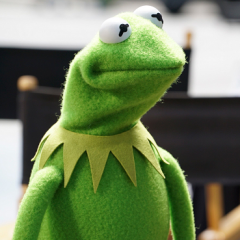
That awesome moment from "Olympic Fanfare and Theme"...
Gruesome Son of a Bitch reacted to Hlao-roo for a topic
While this statement is incorrect, I appreciate your interest.1 point -
What Chaac said. The key difference in this case is that when civilians like us escape from police custody in peacetime, the police don't shoot to kill (for the most part, unless you're armed or a real danger to society or they're prejudiced or just having a bad day). The post-escape plot in The Great Escape does seem to drag a bit but it is absolutely essential to the story since, with this being a mostly true story based on real people, the audience has to see what happens to each character they've grown to respect and root for over the previous five hours of the movie. If the movie ended when they emerged from the hole, 20 feet from the trees, or moved their fates to the end credits, it would cheapen the climax of the film I was totally shocked when some escapees were shot after being told to "stretch their legs." I was saddened when the plane crashed and the one guy died right there. And I cheered when McQueen jumped the fence (yes, a Hollywood embellishment meant to make us cheer). So it was totally surprising that only three escapees made it to freedom, and the rest were either recaptured or murdered -- I'm not sure how much character building you need in a prison escape movie if your character arc ends when you die. This brings closure to the film. Old-school epics were not meant to be over quickly.1 point
-
OK, folks, I guess I should clarify a little: I never intended to "pit" Shore against Williams, nor did I intend to belittle any effort of Shore's. I merely offered a reason -beyond mere tastes and personal sympathies- why one might prefer the work of one composer over the other. Shore's LotR scores seem to have become holy cows here, and that's fine, but I certainly wasn't attacking them, not at all! Having said that, and especially given that some of you seem rather eager to "counter-attack" by suggesting that the musically educated among us are somehow restricted by our insights, and fail to appreciate music beyond its "theoretical" value, I will freely and most happily admit that my own response to Williams' music, and to all great art, for that matter, is first and foremost emotional. But I also get an intellectual kick (which can be surprisingly emotional too!) out of great craftsmanship!1 point
-
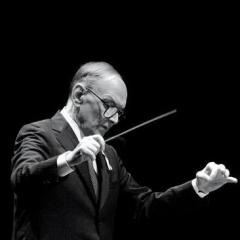
Blu-ray News and Deals
Joe Brausam reacted to Koray Savas for a topic
Catch Me If You Can is one of Spielberg's best.1 point -
Parts of Hook are perhaps some of the busiest, dizziest orchestration in their whizzing and buzzing and plucking enthusiasm. And certainly parts of the exuberant score would sound weird indeed for movies and moviegoers of today. Hook is a score that is still strongly linked to the 1980's Hollywood wunderkind style of moviemaking aesthetic, which was slowly but surely passing by the time Hook appeared in the theaters. It would be too much for most modern films, so colorful, extrovert and indeed unabashedly rambunctious it seems.Spielberg's changing directions certainly left a mark on the score, as he was pondering different approaches to the story. The near-musical, opera sans libretto as he calls it in the original liner notes, is really what Williams achieved in the end with the score, Korngoldian opera without singing. All the song styled long melodic lines, the balletic and colorful and indeed forefront approach could feel schmaltzy to most modern ears. Hook is also a score of interesting contrasts. It contains that opening dreamy, gentle music for the nostalgia of childhood, followed by the energetic and vibrantly dazzling music for the wonders of Neverland, the pomposity of the pirates, the wacky jollity of the Lost Boys, the warm and lyrical discovery music of childhood and a finally Williams pits elements of all that has gone before against each other in the Ultimate War and draws everything emotionally together with the Farewell to Neverland. The constant variety actually makes the score very strong as a whole and the themes tie everything together in a wonderful way. And I can certainly see why not everybody likes the score. It is just so energetic and busy and dazzling and buzzing and whizzing much of the running time it can wear you out. There is such a sense of many things going on it might irritate people who like more lean approach and larger arcs instead of dense writing.1 point
-
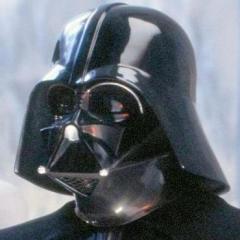
The Complete Indiana Jones Blu-ray Collection Arrives This Fall!
Gruesome Son of a Bitch reacted to King Mark for a topic
They could use Desplat. I'd bet he'd write much superior Star Wars scores than Williams. He's already proven it with Harry Potter1 point

